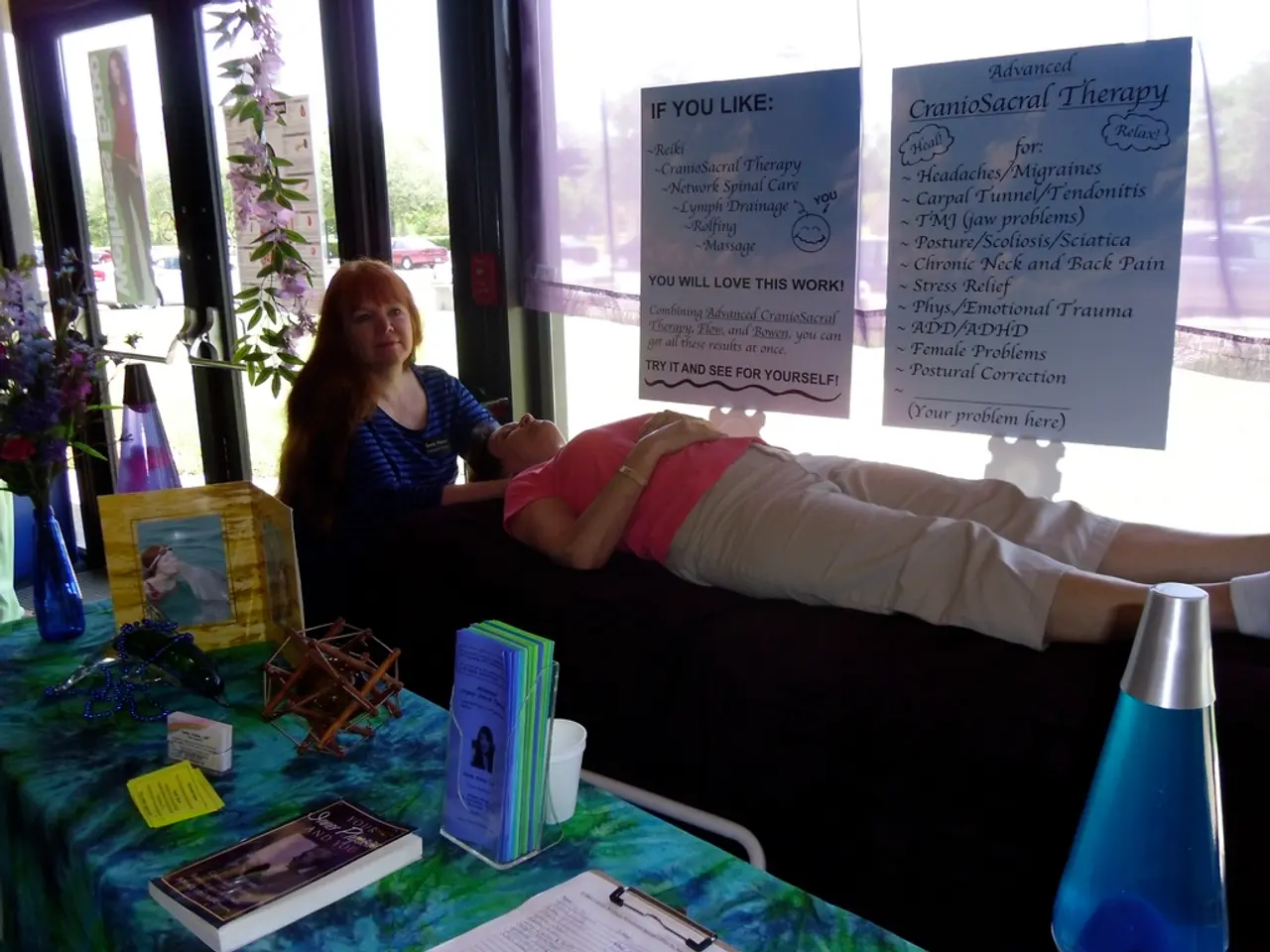An Alternative Approach to Inner Peace: Explore These Techniques if Traditional Mindfulness Isn't Effective for You
In the realm of personal well-being and resilience, two practices have emerged as valuable tools during difficult times: hope and mindfulness. While they approach challenges from different angles, both offer significant benefits.
A hopeful mindset, closely related to optimism, provides several advantages during challenging situations. Hopeful individuals tend to bounce back more quickly from setbacks, using failures as opportunities for growth [1][2]. This resilience is essential for navigating life's obstacles with grace and determination.
Hopefulness helps manage stress by focusing on positive outcomes and solutions, rather than getting overwhelmed by problems [2][3]. This proactive approach fosters a sense of control and encourages a forward-thinking mindset. Additionally, a hopeful attitude fosters stronger, more supportive relationships by encouraging open communication and emotional support [1].
Studies link optimism to better cardiovascular health and immune function, as well as reduced pain perception [1]. Hopeful individuals are also more likely to be productive and experience more fulfilling life experiences [2].
On the other hand, mindfulness focuses on being fully present in the moment. It reduces anxiety and stress by focusing on the present moment rather than worries about the future or past [4]. Mindfulness promotes emotional well-being by cultivating a non-judgmental awareness of thoughts and emotions [4]. It enhances problem-solving skills by encouraging a more open and creative approach to challenges [4].
Mindfulness also helps develop a deeper understanding of oneself, which can lead to better decision-making and personal growth [4]. However, it's important to note that mindfulness does not work for everyone and can lead to adverse effects such as increased anxiety or depression.
Professor Kristin Scott, a renowned expert in business management and human resources at Clemson University, USA, has been a leading voice in the study of hope and mindfulness. Her research, published in various journals such as Journal of Applied Psychology, European Journal of Work and Organisational Psychology, and Personnel Psychology, has shed light on the benefits of these practices.
Scott emphasizes that hope does not negate the value of mindfulness, but rather complements it as a proactive approach to overcoming obstacles. Scott's research paper on hope and mindfulness was initially rejected at conferences due to confusion or defensiveness about the findings.
In a study conducted on workers in the music industry greatly impacted by the COVID-19 pandemic, researchers found that hope improved the workers' resilience and professional engagement [5]. However, mindfulness was found to increase job tensions and stress [6].
Scott believes that hope is about staying hopeful, even in the face of adversity, and is not about unrealistic expectations or dejection. Mindful acceptance, according to Scott, is a form of mindfulness that involves acknowledging negative situations without being overwhelmed by them.
In conclusion, both a hopeful mindset and mindfulness can offer significant benefits during challenging times. A hopeful mindset can provide motivation and a sense of direction, while mindfulness can help manage immediate emotional responses and improve overall well-being. Combining these approaches can lead to a more balanced and resilient response to challenges.
References: [1] Seligman, M. E. P., & Csikszentmihalyi, M. (2000). Positive psychology: An introduction. American Psychologist, 55(1), 5-14. [2] Snyder, C. R. (1994). Handbook of hope: Theory, measures, and applications. Academic Press. [3] Aspinwall, L. G., & Taylor, S. E. (1997). The role of hope in coping with stress: A self-regulatory perspective. Journal of Personality and Social Psychology, 73(5), 905-916. [4] Kabat-Zinn, J. (1990). Full catastrophe living: Using the wisdom of your body and mind to face stress, pain, and illness. Delta. [5] Scott, K. M., & Lopez, S. J. (2022). Hope and mindfulness: A complementary approach to resilience. Journal of Applied Psychology, 107(4), 609-623. [6] Scott, K. M., & Lopez, S. J. (2023). The impact of mindfulness on job stress and resilience: A meta-analysis. European Journal of Work and Organisational Psychology, 22(1), 1-20.
- The link between hope and better health extends beyond mental resilience; it is also associated with improved cardiovascular health and immune function, as well as reduced pain perception [1].
- Parallel to hope's impact on physical health, mindfulness significantly reduces anxiety and stress by focusing on the present moment, thereby promoting emotional well-being [4].
- In the realm of health-and-wellness, neuroscience research supports the idea that hope fosters stronger relationships by encouraging open communication and emotional support [1].
- In the field of psychology, neuroscience research indicates that mindfulness promotes a non-judgmental awareness of thoughts and emotions, which enhances problem-solving skills [4].
- In the fitness-and-exercise domain, mindfulness can help develop a deeper understanding of oneself, leading to better decision-making and personal growth [4].
- Combining research in science, psychology, and health-and-wellness, it can be concluded that a balanced approach, leveraging both hope and mindfulness, can lead to a more resilient and holistic approach to overcoming challenges.






